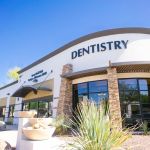The Role of Zinc in Oral Health
- 1. Understanding Zinc's Contribution to Oral Health
- 2. The Impact of Zinc Deficiency on Oral Health
- 3. Key Benefits of Zinc for Oral Care
- 4. Zinc-Rich Foods That Promote Oral Health
- 5. The Role of Zinc in Toothpaste and Oral Health Products
- 6. Real-Life Stories and Case Studies on Zinc's Effectiveness
- 7. How to Incorporate Zinc into Your Daily Routine for Optimal Oral Health
- 8. Discover More About Zinc-Enhanced Oral Care Products
1. Understanding Zinc's Contribution to Oral Health
Zinc plays a crucial role in maintaining healthy teeth and gums. It contributes to oral health by helping to reduce inflammation, promote healing, and strengthen the immune system. Zinc is also known for its ability to control plaque formation, a major cause of gum disease and tooth decay.
It acts as an antibacterial agent, ensuring that harmful bacteria in the mouth are kept under control. By controlling bacterial growth, zinc helps prevent common oral issues like gingivitis, bad breath, and tooth decay. The mineral also supports the regeneration of tissues, ensuring that any damage to the gums or teeth is repaired more effectively.
2. The Impact of Zinc Deficiency on Oral Health
When you don't get enough zinc, your oral health can suffer. Zinc deficiency has been linked to a higher risk of developing periodontal diseases, gum inflammation, and a weakened immune system. The lack of zinc can impair your ability to fight off oral infections and slow down the healing process after dental procedures.
A common sign of zinc deficiency in the mouth includes a white coating on the tongue, which is an indication that the body is struggling to fight off bacteria. Moreover, people who suffer from zinc deficiency may experience an increased incidence of cavities due to the lack of zinc's protective effects on teeth enamel.
3. Key Benefits of Zinc for Oral Care
Zinc is a powerful ally when it comes to oral hygiene. Its primary benefits for oral care include:
- Reduces Plaque Formation: Zinc helps reduce the buildup of plaque on teeth, which can lead to tartar and cavities if left unchecked.
- Prevents Gum Disease: Zinc promotes healthy gums by reducing inflammation and supporting tissue repair.
- Combats Bad Breath: Zinc neutralizes the sulfur compounds responsible for bad breath, providing a fresh mouth feel.
- Strengthens Tooth Enamel: Zinc helps protect and strengthen tooth enamel, making teeth more resistant to decay.
4. Zinc-Rich Foods That Promote Oral Health
Incorporating zinc into your diet is a natural way to support oral health. Zinc-rich foods include:
- Oysters: These shellfish are one of the most zinc-dense foods available.
- Red Meat: Beef, lamb, and pork are excellent sources of zinc.
- Poultry: Chicken and turkey are also rich in zinc.
- Legumes: Beans, lentils, and chickpeas provide a plant-based source of zinc.
- Nuts and Seeds: Almonds, cashews, and pumpkin seeds are good sources of zinc as well.
5. The Role of Zinc in Toothpaste and Oral Health Products
Many oral care products now include zinc as a key ingredient due to its proven benefits for oral hygiene. Zinc-enriched toothpaste helps to reduce plaque buildup, prevent bad breath, and maintain gum health. Some products also incorporate zinc in the form of zinc citrate or zinc oxide, which can offer long-lasting antibacterial properties.
Using zinc-based toothpaste regularly can help maintain a healthy oral environment by actively controlling bacterial growth and promoting enamel protection.
6. Real-Life Stories and Case Studies on Zinc's Effectiveness
One of the most significant benefits of zinc for oral health comes from its practical effectiveness. Many users have shared their success stories in improving their gum health and fighting bad breath through zinc-based oral care products. A popular case study involves a group of individuals who participated in a trial using zinc-enriched toothpaste for six months. The results showed a significant reduction in plaque buildup, as well as improved gum health and a fresher breath.
These real-life stories illustrate the tangible benefits of zinc in promoting better oral hygiene and providing lasting protection against common dental issues.
7. How to Incorporate Zinc into Your Daily Routine for Optimal Oral Health
Incorporating zinc into your daily oral hygiene routine is easy and highly effective. Start by choosing a high-quality zinc-enriched toothpaste. Make sure to brush your teeth at least twice a day, paying extra attention to your gum line and the back of your teeth. Additionally, consider incorporating zinc-rich foods into your meals to support oral health from within.
If you're looking for more targeted benefits, you might also consider zinc supplements, though it's always best to consult with a healthcare professional before adding any new supplements to your routine.
8. Discover More About Zinc-Enhanced Oral Care Products
If you're interested in improving your oral health with the power of zinc, we encourage you to explore zinc-based oral care products. From toothpaste to mouthwashes, these products are designed to protect your teeth and gums, leaving you with a healthier and fresher smile. Click here to discover the latest zinc-enhanced oral care products and take the next step towards optimal oral health today!







 Alameda Crossing Dental Group and Orthodontics4.0 (188 review)
Alameda Crossing Dental Group and Orthodontics4.0 (188 review) East Valley Periodontics4.0 (993 review)
East Valley Periodontics4.0 (993 review) Dr. Enrique Wismann0.0 (0 review)
Dr. Enrique Wismann0.0 (0 review) Johnston Dental Group | Dentists in Johnston RI | DMD4.0 (251 review)
Johnston Dental Group | Dentists in Johnston RI | DMD4.0 (251 review) American Dental Solutions | Phoenixville, PA4.0 (180 review)
American Dental Solutions | Phoenixville, PA4.0 (180 review) Central Dental - Dentist Westchester NY4.0 (63 review)
Central Dental - Dentist Westchester NY4.0 (63 review) The Importance of Oral Health Education During Pregnancy for a Healthy Pregnancy
The Importance of Oral Health Education During Pregnancy for a Healthy Pregnancy Best Tips for Brushing Your Teeth Properly for Healthy Gums: Essential Techniques for Oral Health
Best Tips for Brushing Your Teeth Properly for Healthy Gums: Essential Techniques for Oral Health Why Skipping Dental Checkups Can Lead to Bigger Oral Health Problems
Why Skipping Dental Checkups Can Lead to Bigger Oral Health Problems Advantages of Porcelain Dental Restorations
Advantages of Porcelain Dental Restorations How Can Diabetes Cause Tooth and Gum Problems? Preventing and Managing Oral Health Issues
How Can Diabetes Cause Tooth and Gum Problems? Preventing and Managing Oral Health Issues Healthy Habits for Promoting Good Oral Health and Hygiene: Tips for a Healthy Smile
Healthy Habits for Promoting Good Oral Health and Hygiene: Tips for a Healthy Smile